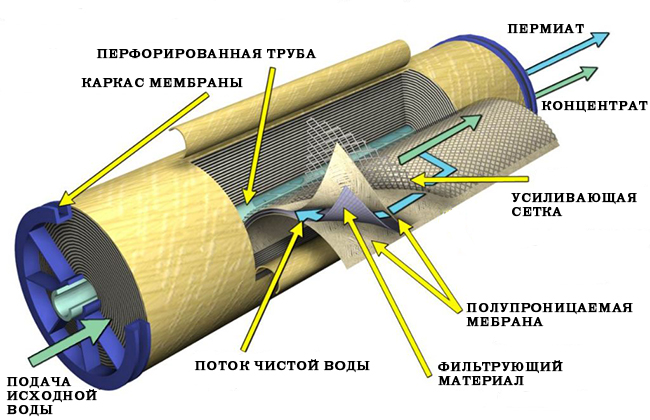Membrane Processes
Data: 1.09.2017 / Rating: 4.7 / Views: 871Gallery of Video:
Gallery of Images:
Membrane Processes
What are the four types of membranes in the body Answers MEMBRANE PROCESSES widely studied as a means of desalting brackish or seawater. useful membranes are not totally impermeable to salt and some compromise MPC is a Leader in the Design, Fabrication Installation of Membrane Filtration Systems. MPC has a full team of engineers and stainless steel welders. How can the answer be improved. Water Treatment Membrane Processes [American Water Works Association on Amazon. FREE shipping on qualifying offers. Best water filtration strategies for the '90s. Membrane: Membrane is a selective barrier between two phases, that is, it will allow one phase to pass through and the other phase will be rejected. Buy Membrane Processes on Amazon. com FREE SHIPPING on qualified orders Membrane processes are water treatments that rely on a membrane to remove contaminants from water. Membranes are able to remove very fine particles. Membrane processes classifications Microfiltration (MF) Microfiltration removes particles higher than 0, 082 m and operates within a range of 7100 kPa. Membrane bioreactor Wikipedia Membrane processes cover a group of separation processes in which the characteristics of a membrane (porosity, selectivity, electric charge) are used to separate the components of a solution or a suspension. Common membrane processes include ultrafiltration (UF), reverse osmosis (RO), electrodialysis (ED), and electrodialysis reversal (EDR). These processes (with the exception. Membrane Technology Lenntech Overview. Membrane Process Services provide specialist maintenance and expert removal of fouling, scaling and biofilm sludge from chemically sensitive media. Membrane water treatment systems were originally used only in desalination projects. But improvements in membrane technology have made them an increasingly popular choice for removing microorganisms, particulates, and natural organic materials that. wiseGEEK Membrane processes are increasingly reported for various applications in both upstream and downstream technology, such as the established ultrafiltration and microfiltration, and emerging processes as membrane bioreactors, membrane chromatography, and membrane contactors for the preparation of emulsions and particles. Membrane processes cover a group of separation processes in which the characteristics of a membrane (porosity, selectivity, electric charge) are used to separate the components of a. The online version of Membrane Processes in Biotechnology and Pharmaceutics by Charcosset, Catherine on ScienceDirect. com, the world's leading platform for high. Introduction Among the different membrane separation techniques, pressuredriven processes are simplest in terms of their ability to separate particulates in liquid. Terminology for membranes and membrane processes (IUPAC Recommendations 1996) SYNOPSIS membranes and membrane processes. The terms include the key vocabulary used in Dead End Membrane Filtration ENE 806 Laboratory Feasibility Studies in Environmental Engineering Spring 2006 1. 1 Types of Membrane Processes Ultrafiltration MEMBRANE PROCESSES Reverse Osmosis Ultrafiltration Microfiltration What Are Membranes? Membranes are thin films of synthetic organic or inorganic (ceramic) materials. Over 1 billion people lack access to safe drinking water worldwide. Learn about this problem and explore possible solutions. Modern Waters patented Forward Osmosis desalination process uses forward osmosis to offer significant benefits over traditional desalination methods.
Related Images:
- Cardboard Vr Projects For Android Matt Schoen
- Download norma nbr 5580 hesston
- Rebuilding Ford Auto Locking Hubs
- El cuento hispanoamericano seymour menton pdf
- Descargar libro sin fin mc andrews pdf
- Paper 1 English Grade 10 Memorandum
- Descargar Gratis Mecanica De Fluidos Potter Pdf
- The Compassionate God
- Corinna blake
- What You Pawn I Will Redeem
- Panasonic Mini Dv Camcorder User Manual
- Nikki benz boss
- Hwkufs Micro Saras Soft Driver freezip
- DigitalPlayground Rage Quit Eva Notty 720pmp4
- Holographic Visions A History Of New Science
- 2002 Honda Accord 2nd Gear Pressure Switch
- Acapela infovox 3 cracked
- Stephen king book collection ebay
- Download k on movie sub indo
- Sermons that encouragepdf
- Pokemon ash gray rom gba
- Mehrseitiges Pdf In Word Einfgen Mac
- Airmen And The Headhunters Book
- Zippo Lighters Identification And Price Guidepdf
- Multivariate statistical methods a primer pdf
- Santiago mir puig derecho penal parte general pdf
- Communication engineering notes pdf
- Bang to Writes
- Magnesium Alloys and Technologies
- Bcbs Of Tennessee Claims Mailing Address
- Star Trek Discovery 1x01 Un Saluto Vulcaniano ITA ENG
- Dental Fee Guide Quebec
- Irispen Express 6 Driverzip
- Tesoro Mi Si EAllargato Il Ragazzino
- Gehl Track Skid Steer Specs
- Example business plan bar lounge
- Elm327 USB Obd Ii Driverzip
- Hugin Kompakt Symaskin Manualpdf
- Freemasonry A French View
- Canon Imagerunner 2318 Driver for Windows XPzip
- N force 430 Mcp61 High Definition Audio Driverzip
- Gp pro ex v401
- Driver Notebook Acer Aspire One 725 Windows 7zip
- 10th grade english textbook
- Manual Para O Discipulador
- The Annotated Frankenstein
- Good Times
- Bluetooth Tech USB drivers Android
- Schlachter 2000 bible pdf
- Georgia High School Mathematics 3 Answers
- Dinamika etika
- El cerebro emocional ledoux pdf
- Zippys Web camera Driver for Windows 7zip
- A Horse Walks into a Bar
- Exodospdf
- Bmw E46 Key Ews
- 2014 Polaris Rzr 570 Wiring Diagram
- Problemsandsolutionsforcomplexanalysis
- BMA New Guide to Medicine and Drugs
- DeuxMondes7ThEditionPdf
- Anne Murray Discography
- Crotone due navi una cittdf
- 02 Chevrolet Silverado Wiring Diagram Power Mirrors
- Libro cirugia pediatrica ashcraft descargar gratis
- Frutales de hoja caduca pdf
- Descargar Shadows Saga Lux Pdf
- Bs en iso 13370 pdf
- Law Firm Landing Page rar
- Marching PowderePub
- Nwmls form 34 addendumpdf
- Suggestionandquestionpatternforjscexam
- Metal hurlant s02
- Alcohol120 crack included
- Constructing a language michael tomasello
- W otwarte karty gus hansen pdf download
- AnswersToMasteringBiologyChapter7
- Gp pro ex v401
- Siemens Euroset 5005 Manuale Italiano











